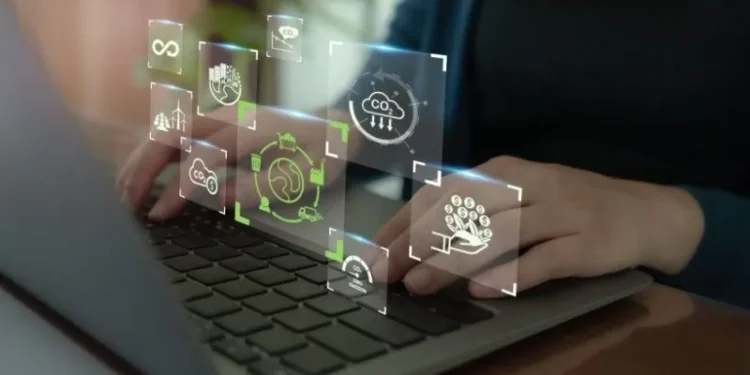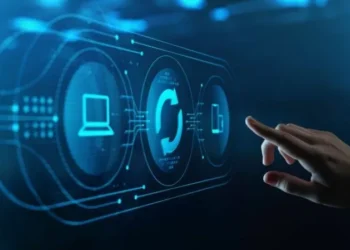The world is facing a pressing challenge – the need to reduce greenhouse gas emissions and achieve net-zero emissions by 2050. This ambitious goal requires a collective effort from individuals, businesses, and governments around the world. And one powerful tool that can help us achieve this goal is digital learning.
Digital learning, also known as e-learning, has been gaining popularity in recent years as a convenient and effective way to acquire knowledge and skills. It involves the use of technology to deliver educational content, making it accessible anytime and anywhere. And with the increasing availability of internet access and devices, digital learning has the potential to reach a vast audience and make a significant impact in the fight against climate change.
So, how exactly can digital learning contribute to achieving net-zero emissions? Let’s explore some of the ways in which this powerful tool can help us in our journey towards a more sustainable future.
1. Raising Awareness and Understanding
One of the first steps towards achieving net-zero emissions is to raise awareness and understanding of the issue. Many people are still unaware of the severity of the climate crisis and the urgent need for action. Digital learning can play a crucial role in educating individuals about the causes and consequences of climate change, as well as the solutions available to us.
Through engaging and interactive online courses, people can learn about the science behind climate change, the impact of human activities on the environment, and the importance of transitioning to a low-carbon economy. This knowledge can help individuals make informed decisions and take action towards reducing their carbon footprint.
2. Training for Green Jobs
The transition to a net-zero emissions economy will require a skilled workforce equipped with the knowledge and skills to implement sustainable practices. Digital learning can provide a cost-effective and efficient way to train individuals for green jobs.
Online courses can cover a wide range of topics, from renewable energy technologies to sustainable agriculture practices. They can also offer specialized training for specific industries, such as green building and sustainable transportation. By providing accessible and flexible training options, digital learning can help individuals acquire the skills needed to contribute to the green economy.
3. Encouraging Sustainable Behaviors
Digital learning can also be used to promote sustainable behaviors among individuals and organizations. Through gamification and interactive activities, online courses can motivate learners to adopt eco-friendly habits in their daily lives. For example, a course on sustainable living can encourage learners to reduce their energy consumption, recycle, and use public transportation.
Moreover, digital learning can also be used to train employees on sustainable practices in the workplace. This can include topics such as energy efficiency, waste reduction, and sustainable procurement. By promoting sustainable behaviors, digital learning can help reduce the carbon footprint of individuals and organizations.
4. Fostering Collaboration and Innovation
Digital learning can also facilitate collaboration and innovation in the fight against climate change. Online platforms can bring together individuals and organizations from different parts of the world to share knowledge and ideas. This can lead to the development of innovative solutions and strategies to reduce emissions and mitigate the effects of climate change.
Moreover, digital learning can also provide a platform for individuals to connect and collaborate on projects that promote sustainability. This can include initiatives such as community gardens, waste reduction programs, and renewable energy projects. By fostering collaboration and innovation, digital learning can help accelerate the transition to a net-zero emissions economy.
In conclusion, digital learning has the potential to play a significant role in helping the world achieve the ambitious goal of net-zero emissions. By raising awareness, providing training for green jobs, promoting sustainable behaviors, and fostering collaboration and innovation, digital learning can contribute to the global effort to combat climate change. As individuals, let us embrace this powerful tool and take action towards a more sustainable future. Together, we can make a difference.






